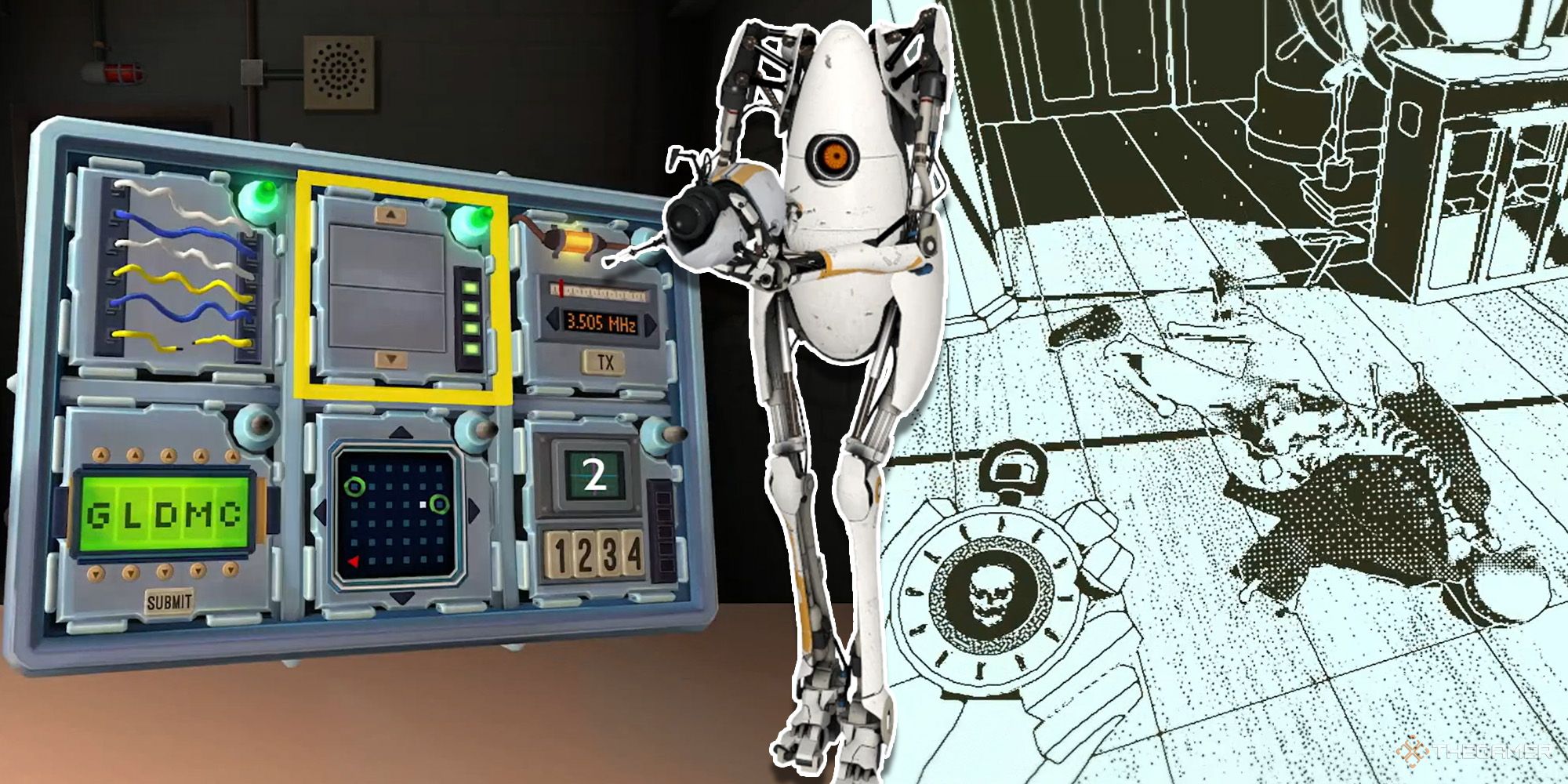Check Out Creative Motifs in Multiplayer Puzzle Games for Free You Can't Miss
Check Out Creative Motifs in Multiplayer Puzzle Games for Free You Can't Miss
Blog Article
Unlock Your Brain's Potential With Testing Challenge Games
Testing puzzle games offer a fascinating possibility for enhancing cognitive feature and mental skill. These brain-teasers, varying from logic-based dilemmas to intricate jigsaw challenges, not only offer amusement but also promote essential thinking and hone analytical abilities. As one navigates via these mental obstacles, the capacity for enhanced memory retention and heightened interest to detail comes to be apparent. The real impact of these games on cognitive growth may expand far past plain home entertainment. What details advantages can they offer in the realm of daily thinking and decision-making? This inquiry warrants even more exploration.
Benefits of Problem Gamings
Engaging in challenge video games provides a multitude of cognitive benefits that expand beyond plain entertainment. This is achieved via pattern acknowledgment and the mental control of forms and concepts, which are vital aspects of numerous challenges.
Furthermore, problem video games enhance focus and focus to information. As gamers immerse themselves in addressing complicated problems, they create the ability to focus for extensive periods, an ability that is transferable to real-world situations. Additionally, problems often call for a calculated approach, cultivating vital reasoning and the capacity to assess circumstances from several perspectives.

Types of Testing Challenges
Puzzle video games been available in a diverse selection of types, each offering unique obstacles that satisfy various cognitive abilities. These puzzles vary from the standard to the modern, interesting players in numerous methods. Among the most preferred types is the reasoning puzzle, such as Sudoku, which needs deductive thinking and pattern acknowledgment. These problems challenge the player to fill in missing components based upon given restrictions, fostering important thinking.
Another classification is the jigsaw puzzle, which faucets right into spatial awareness and visual understanding. By assembling tiny segments to develop a full image, players improve their ability to picture and rotate items psychologically. Crossword problems, on the various other hand, are language-based, challenging individuals to remember vocabulary and synonyms, thus exercising verbal skills and memory.
Furthermore, there are mechanical challenges, like the Rubik's Dice, which demand strategic planning and hand-eye coordination. These challenges need a series of transfer to reach the desired result, motivating players to believe several steps ahead. Moreover, electronic challenges, such as retreat area video games, combine various elements of logic, spatial thinking, visit and synergy in a digital atmosphere, providing a comprehensive challenge that stimulates several cognitive faculties all at once.
Improving Cognitive Skills
The advantages of puzzle video games extend past amusement, serving as beneficial tools for enhancing cognitive skills. Puzzle games need gamers to think seriously and strategically, cultivating an environment where abstract reasoning is required.
Additionally, problem video games play a pivotal role in improving memory retention. Furthermore, problems usually demand continual interest and focus, which can boost focus abilities over time.
Furthermore, the problem-solving element of challenges urges creative thinking, as players find out to come close to obstacles from numerous angles. This skill is especially invaluable in vibrant continue reading this workplace, where ingenious remedies are frequently required. Overall, puzzle video games are crucial in cultivating a sharper, much more agile mind.
Selecting the Right Game
Selecting the appropriate challenge video game is important for maximizing cognitive advantages. Different challenge video games target different cognitive abilities, such as analytic, memory, spatial thinking, or rational reasoning.

Additionally, considering your individual rate of interests can maintain inspiration and interaction, which are important for long-term cognitive advancement. A game that straightens with your leisure activities or enthusiasms will likely hold your rate of interest longer, making certain constant cognitive exercise. Inevitably, selecting a game that straightens with both individual rate of interests and cognitive objectives will certainly generate the most valuable outcomes, fostering a appealing and productive mental exercise.
Tips for Taking Full Advantage Of Advantages
To completely harness the cognitive benefits of puzzle video games, it is vital to utilize strategies that optimize their impact - Multiplayer puzzle games for free. Consistency is crucial; regular interaction with problem video games can lead to continual cognitive benefits. Establish apart devoted time daily to engage with these games, guaranteeing it becomes part of your regimen. Second of all, variety matters. Branching out the kinds of puzzles you play-- such as crosswords, Sudoku, or logic challenges-- boosts various cognitive abilities and avoids psychological stagnation.
In addition, progressively enhance the difficulty degree of the problems. Starting with less complex puzzles and considerably taking on more challenging ones can improve problem-solving skills and cognitive durability. It is also helpful to engage in reflective technique; after finishing a challenge, take a moment to examine the methods you utilized and consider alternate techniques. This representation can strengthen your understanding and boost future performance.

Conclusion
Integrating tough challenge video games into day-to-day routines provides significant cognitive benefits, boosting psychological skill and problem-solving abilities. By involving on a regular basis with a variety of problems, such as reasoning jigsaws, video games, and crosswords, individuals can enhance memory retention and important thinking abilities. Selecting appropriate video games and employing techniques to maximize their benefits can better promote psychological flexibility and strength - Multiplayer puzzle games for free. Eventually, the regular technique of these activities promotes cognitive development, visit here adding to enhanced efficiency in daily tasks and obstacles.
Testing puzzle video games present an appealing opportunity for enhancing cognitive feature and psychological acuity.Problem games come in a diverse range of types, each offering special obstacles that provide to various cognitive skills.The benefits of problem games extend beyond enjoyment, serving as useful devices for boosting cognitive abilities. Different puzzle video games target numerous cognitive abilities, such as problem-solving, memory, spatial reasoning, or rational thinking. Branching out the types of challenges you play-- such as crosswords, Sudoku, or reasoning challenges-- stimulates various cognitive abilities and stops psychological torpidity.
Report this page